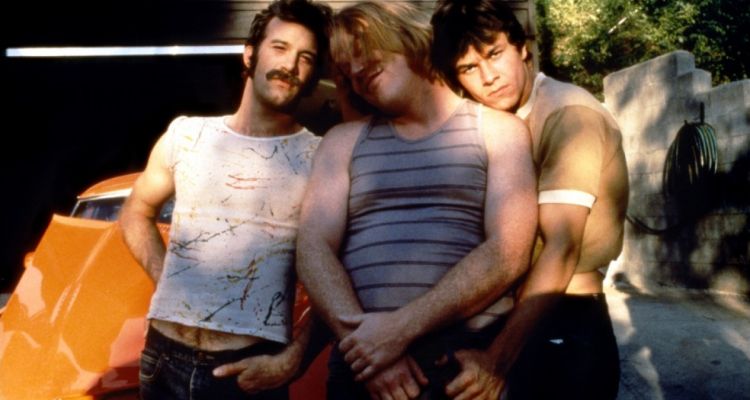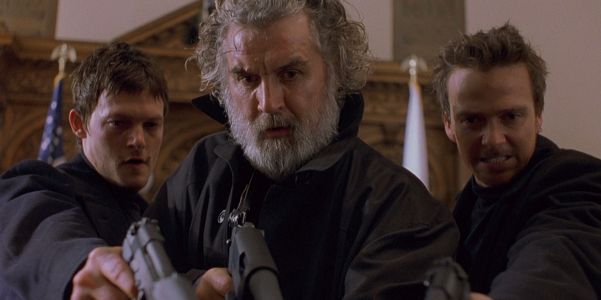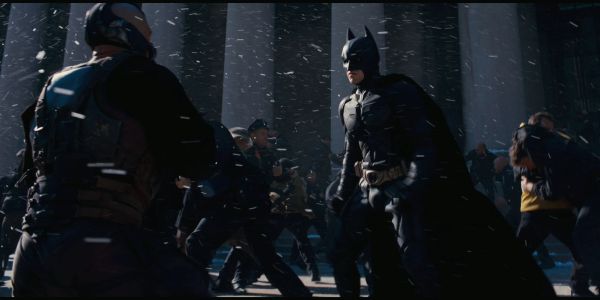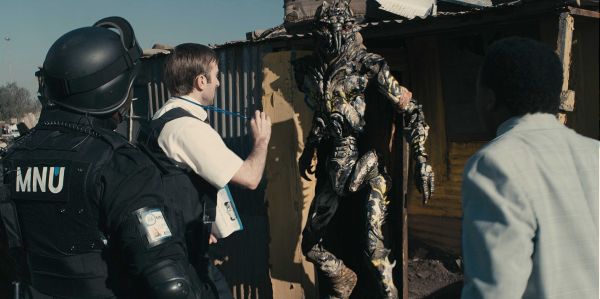What’s Your Favorite Film Theme And Which Movie Did It Best?

Manon de Reeper is the founder and CEO of Film…
Every month, the team of Film Inquiry is posed a question. This month, the question is “what is your favorite film theme, and which movie did it best?”
You can read the answers of the individual team members who chose to participate below! Feel free to join the discussion, too!
Derrek Greene: Justice

The themes of justice and injustice are incredibly diverse in the world of film. From the wave of superhero movies to the films based on Julian Assange and the raid on Bin Laden’s compound, there’s a vast cross section of justice in cinema. This is one of my favorite themes in movies because justice can be very subjective. The cult favorite, The Boondock Saints, is a prime example of this theme. Not only does the movie examine “justice” from both sides of the coin, but it leaves the interpretation of what’s right and wrong to the viewer.
After killing two Russian Mob enforcers in self-defense, the MacManus brothers (Sean Patrick Flanery and Norman Reedus) have divine inspiration to become vigilantes against the “evil men” of Boston. They vow only to kill criminals and not to harm anyone they deem “good”. Now this is questionable justice in and of itself. Their victims are given no due process but they are guilty of numerous crimes. Does that make their mission just?
Even the FBI agent (Willem Dafoe) that is trying to track them down questions whether or not this type of justice has become necessary. The leader of the local Italian Mafia has been brought to charges on more than one occasion but they’ve been unable to convict him. Agent Smecker ultimately opts to assist them in their war on evil because of this. He completely turns his back on the agency and helps them escape a mafia-set trap. Right becomes wrong, law-breaking becomes law-enforcing.
As the credits roll on the movie, we see news interviews with citizens asking for their opinion on the MacManus brothers. The general population seems to be pretty evenly split in their opinion. If everyone were to take up a similar mantle, society would devolve into chaos. The MacManus brothers ultimately become criminals in the eyes of the government and “Saints” to those that feel threatened by the evil they put an end to. The justice system may be fallible, but self-proclaimed justice is hardly a viable substitute. This theme becomes ripe for storytelling because it is such a gray area both in real life and in fiction. For every honest cop who is corrupted, there is a villain that can be enlightened. For every prisoner falsely accused, there is a criminal that will escape prosecution. The human drama of law and order can be interpreted and twisted depending on the characters point of view.
Are the MacManus brothers justified in their actions, or have they merely stepped into the old adage of two wrongs not making a right?
Jay Ledbetter: Familial Acceptance

Looking back at many of my favorite movies, it becomes clear that I am mostly drawn to ones that deal with familial acceptance. Family is perhaps the most intimate part of a person’s life and a person’s upbringing is really what shapes their motivations for the rest of their life. My love for all things Paul Thomas Anderson is no secret to those who know me and torn apart families can be seen (to some degree or another) in every single one of his films. He deals with this theme as well as anyone, and Boogie Nights is perhaps the most unique application of coping with the rejection of your biological family and finding love in a surrogate one. In Boogie Nights, this family just so happens to be in the world of porn.
Fed up with his drunken, abusive mother and complacent father, Dirk Diggler (played by Mark Wahlberg) decides to use his…uh…natural gifts to his benefit and enter the world of 1970’s porn. What he finds there is not only a job that he is good at and earns great money from, but also the family he never had growing up. What Anderson does so well in his films is balance the drama and often very serious subject matter with fun, light-hearted moments. Yes, there are scenes of extreme violence, but there are also scenes where John C. Reilly tries to prove he is stronger than Mark Wahlberg and some of the funniest moments of the film involve explicit sex. As always, Anderson’s work in Boogie Nights is technically wonderful and the characters are so fleshed-out and nuanced. Some people may be turned off by the premise of “the world of porn in the 1970’s”, but that’s not what it’s about. It’s actually a movie about family done as creatively as it can be done.
Raul Marin: Redemption

Whether you find it in a book or a film, everyone seems to love a great redemption story. We all love to feel empowered because no one likes to be told that they cannot do something, especially when you have failed at something time and time again. The pain of losing starts to consume you, and you become obsessed with trying to overcome the problems that have been haunting you all your life. All of a sudden, not only do you doubt your strength and abilities, but so does the world, too. Now, the purpose of your life is not just to live and survive, but to redeem yourself as well. This narrative sets up the perfect creation of a character in a film. A character that you cannot help but cheer for as the film tells this character’s story. From the darkest of moments, to the glory of victory, it is a journey that both characters and audiences experience together. There are many film themes that inspire, enlighten, and empower us with these stories, but my favorite one is redemption.
When I think about the film that best exemplifies the theme of redemption, I think about the trilogy-ending film from Christopher Nolan, The Dark Knight Rises. From Batman Begins to The Dark Knight, and into this film, Batman (Christian Bale) found himself broken in his battles against his enemies. Among many things, his mind was challenged, his hope was lost, and his spirit was broken due to their relentless pursuit of getting rid of him. As emotionally fragile as he was, this is the film where he endured the most physical pain in the entire trilogy. We also have to keep in mind that he has spent so much of his life trying to avenge the loss of his parents. The making of this trilogy proved to be an act of redemption for the Batman character in films. This was a franchise that was in need of breaking boundaries and establishing a story that could carry on for future generations. One thing I appreciated in the trilogy is the sense of reality it had. For that reason, the message that was established in this film was a very strong and convincing one; and it was that even after the agony and misery of defeat, the Batman that Gotham City needed would rise again.
Manon de Reeper: Inequality

When I consider my favorite movies, a recurrent theme seems to be inequality. Movies are our “window into the world”: they have a unique ability to make us understand points of view we would or could not have considered otherwise. Often, movies discuss the issues of social inequality; so often has the hardship of the African Americans and their fight towards equality been portrayed (the examples are too numerous to mention, but most notably, the Academy’s most recent Best Film winner 12 Years A Slave). Other types of inequality discussed in film include economic inequality (how often have we seen the movie where a poor child or man has to steal to better his life?), political equality and gender inequality (the struggle of women to attain the right to vote would be a combination of those two), et cetera. The aim of these movies is often to create at least a degree of understanding among the more fortunate.
The movie in which I think the theme of (social) inequality has been done best is District 9. While the movie is fairly obvious in its thematic content of inequality and apartheid, by pouring it into the mold of newly arrived aliens, Neill Blomkamp discussed the topic with a measure of detachment from reality. The aliens, separated from humans in fenced camps, treated unfairly and unethically, solicit unexpected sympathy. They look menacing and unfriendly, yet, the audience is left wishing for their successful escape. The main character, Wikus van de Merwe (Sharlto Copley), is an unsympathetic, elitist bastard, and it’s so gratifying to see him learn what it’s like to be on the other side of the fence.
Although Blomkamp took the notion of “illegal alien” very literally, the movie was a great success at portraying the effect social inequality has on any kind of being, human or otherwise.
And now it’s your turn: what is your favorite theme? Which movie did it best?
Regarding our own favorite themes, do you think there are movies that did it better than the ones we discussed?
It’s more fun to include more people on the discussion, so please share this article on your social media accounts! 😀
Does content like this matter to you?
Become a Member and support film journalism. Unlock access to all of Film Inquiry`s great articles. Join a community of like-minded readers who are passionate about cinema - get access to our private members Network, give back to independent filmmakers, and more.
Manon de Reeper is the founder and CEO of Film Inquiry, and a screenwriter/producer. Her directorial debut, a horror short film, is forthcoming in 2021.













